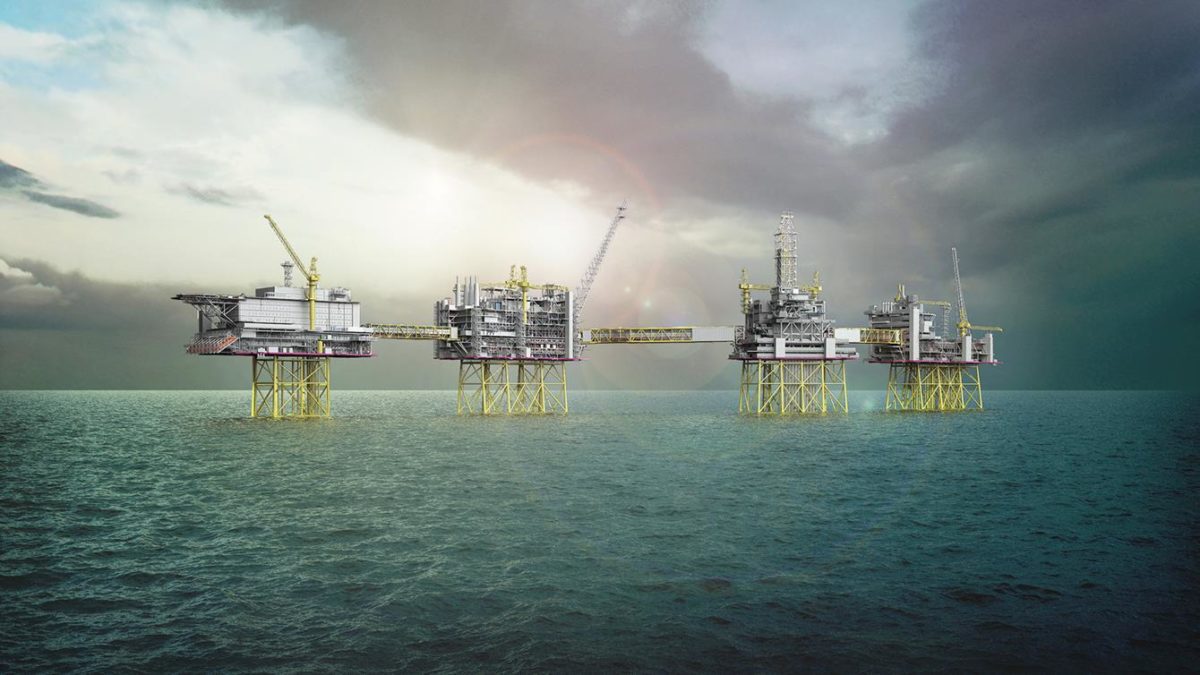Johan Sverdrup Field Centre. Photo: Statoil
By Jonas Cho Walsgard and Mikael Holter
(Bloomberg) — Statoil ASA lowered development costs for the start-up at its giant Johan Sverdrup oilfield by $2.9 billion and raised the estimated initial output by 16 percent after intensifying drilling and streamlining operations.
After successful work on “optimizing the processing facility,” phase 1 production capacity was raised to 440,000 barrels of oil a day from 315,000 to 380,000 barrels, the Stavanger-based company said in a statement. Costs for the first phase are expected to be 99 billion kroner ($12 billion), 24 billion kroner lower than first predicted.
“We’re now seeing the results of good cooperation between Statoil, its partners and suppliers,” said Eldar Saetre, chief executive officer at Statoil. “We’re strongly reducing investment costs, and we are increasing the process capacity, resource estimate and value of the field.”
The company made changes to the later phases in the project to add another processing platform on the field center, increasing the expected full capacity to 660,000 barrels of oil a day, up from 550,000–650,000 barrels. The full-field investment cost was improved to 140-170 billion kroner from the 170–220 billion kroner expected 2015.
Sverdrup, holding as much as 3 billion barrels of crude, is Norway’s biggest offshore project in decades and represents a lifeline for an oil industry suffering the worst market rout in a generation. Statoil said the first phase of the development can now be profitable at less than $25 a barrel, compared to the current Brent crude price of $49.22.
Statoil also adjusted the resource estimate to 1.9 billion to 3 billion barrels of oil equivalent from 1.7 billion to 3 billion barrels.
The investment decision on future phases will now be made in the first half of 2017 and a final investment decision in second half of 2018. That was delayed from 2016 and 2017, respectively. Full-field production start will be 2022, as originally planned, Statoil said.
Statoil is operator of Sverdrup and owns 40 percent, Lundin Petroleum holds 22.6 percent, Det Norske 11.5 percent, Petoro 17.4 percent and Maersk 8.44 percent.
“It has been my long held view that this world class project will continue to show improvements from a resource, cost and value perspective as time progresses,” said Alex Schneiter, CEO and president of Lundin Petroleum.
(c) Copyright Thomson Reuters 2016.

 Join The Club
Join The Club











